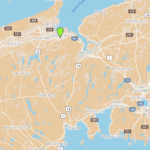Today, June 9, Nova Scotia is reporting 13 new cases of COVID-19 and 20 recoveries.
There are seven new cases in Central Zone. Two of the cases are close contacts of previously reported cases. Two are related to travel and three are under investigation.
Six new cases are in Eastern Zone. Three of the cases are close contacts of previously reported cases. Two are related to travel and one is under investigation.
There is limited community spread in Central Zone. Eastern, Northern and Western Zones continue to be closely monitored for community spread.
In addition to these cases, Nova Scotia is reporting one additional case of COVID-19 today, June 9, connected to Citadel High School in Halifax. The person was not in school today.
Because the case came in after the cut-off for reporting, it will not appear on the COVID-19 data dashboard until tomorrow, June 10.
The school will close to students until Monday, June 14, to allow for testing of close contacts and a deep cleaning of the school. Students will learn from home during the closure beginning Thursday, June 10. Families and students will receive an update before June 14.
Public health will be in touch with any close contacts of positive cases and advise of next steps, including testing. Everyone who is a close contact will be notified, tested and asked to self-isolate for 14 days.
The initial public health assessment has indicated a defined, limited number of close contacts.
Out of an abundance of caution, public health is recommending that all students and staff be tested for COVID-19, whether or not they have symptoms. No self-isolation is required while they wait for test results, unless they have been identified as a close contact by public health or have symptoms.
As of today, Nova Scotia has 164 active cases of COVID-19. Of those, 15 people are in hospital COVID-19 units, including seven in ICU. The median age of people hospitalized in the third wave is 53 for non-ICU and 55 for people in ICU.
On June 8, Nova Scotia Health Authority’s labs completed 4,171 tests.
As of June 8, 647,604 doses of COVID-19 vaccine have been administered. Of those, 45,372 Nova Scotians have received their second dose.
Since April 1, there have been 3,965 positive COVID-19 cases and 22 deaths. Cases range in age from under 10 to over 90. There are 3,779 resolved cases. Cumulative cases may change as data is updated in Panorama.
Testing advice:
Nova Scotians with or without symptoms can book a test at https://covid-self-assessment.novascotia.ca/en for primary assessment centres across the province. Those with no symptoms are strongly encouraged to use pop-up sites if they want to be tested.
More information on testing can be found at https://www.nshealth.ca/coronavirustesting
Anyone with COVID-19 symptoms is advised to self-isolate and book a COVID-19 test. Everyone they live with must also self-isolate until the person receives their first negative test result. If the test is positive, public health will advise everyone about what to do.
Anyone advised by public health that they were a close contact needs to complete a full 14-day quarantine, regardless of test results. If the close contact is symptomatic, everyone they live with must also self-isolate until the person receives their first negative test result. If the test is positive, public health will advise everyone about what to do.
Symptoms and self-assessment:
Nova Scotians should visit https://covid-self-assessment.novascotia.ca/ to do a self-assessment if in the past 48 hours they have had or are currently experiencing mild symptoms, including:
— fever (i.e. chills/sweats) or cough (new or worsening)
— sore throat
— runny nose/nasal congestion
— headache
— shortness of breath/difficulty breathing
People should call 811 if they cannot access the online self-assessment or wish to speak with a nurse about their symptoms.
Anyone with symptoms should immediately self-isolate and book a test.
Quick Facts:
— a state of emergency was declared under the Emergency Management Act on March 22, 2020, and extended to June 13, 2021
Additional Resources:
More information on COVID-19 case data, testing and vaccines is available at: https://novascotia.ca/coronavirus/data/
Nova Scotians can find accurate, up-to-date information, handwashing posters and fact sheets at: https://novascotia.ca/coronavirus
Nova’s Scotia’s five-phase reopening plan, announced May 28, 2021: https://novascotia.ca/reopening-plan/
Businesses and other organizations can find information to help them safely reopen and operate at: https://novascotia.ca/reopening-nova-scotia
More information about public health text notifications of positive COVID-19 cases and close contacts is available here: https://www.nshealth.ca/news/public-health-begins-contacting-positive-covid-19-cases-close-contacts-text-message
More information on what is considered essential travel is available here: https://novascotia.ca/coronavirus/travel/#from-outside-atlantic-canada
Government of Canada: https://canada.ca/coronavirus or 1-833-784-4397 (toll-free)
The Mental Health Provincial Crisis Line is available 24/7 to anyone experiencing a mental health or addictions crisis, or someone concerned about them, by calling 1-888-429-8167 (toll-free)
Anyone needing help with a non-crisis mental health or addiction concern can call Community Mental Health and Addictions at 1-855-922-1122 (toll-free) weekdays 8:30 a.m. to 4:30 p.m.
Kids Help Phone is available 24/7 by calling 1-800-668-6868 (toll-free)
For help or information about domestic violence 24/7, call 1-855-225-0220 (toll-free)
Source: Release #notw



